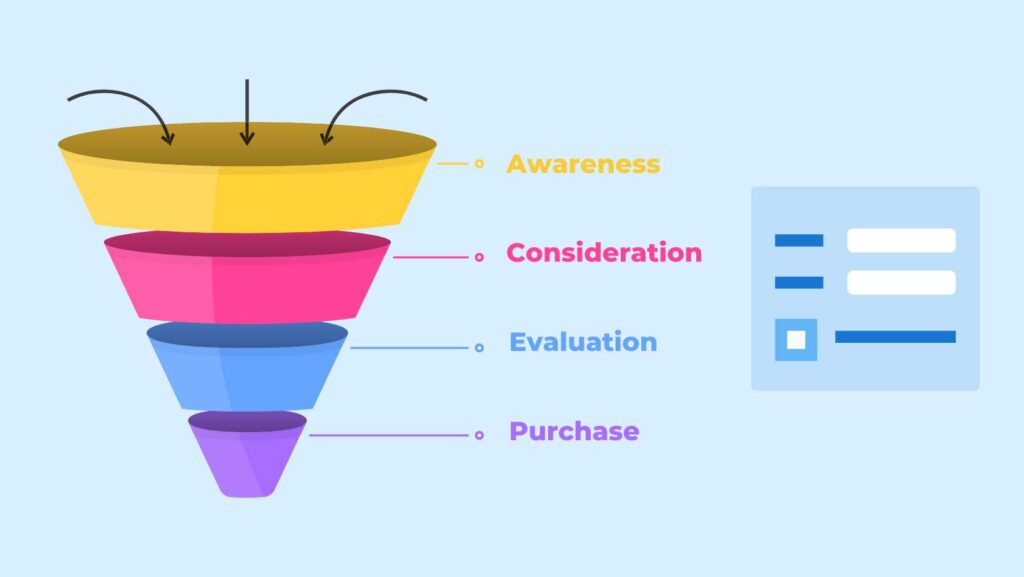Demand Generation teams are responsible for creating and executing strategies to attract potential customers and move them through the sales funnel. However, with so many different channels and tactics available, it can be challenging to know where to focus your efforts.
From Marketing Qualified Leads (MQLs) to Marketing Qualified Meetings (MQMs)
One area to direct your efforts? For B2B marketers, driving marketing qualified meetings can be critical to the success of your demand generation strategy. You’re probably well-acquainted with marketing qualified leads (MQLs), but a more important KPI to pay attention to is marketing qualified meetings (MQMs).
A marketing qualified meeting is a live engagement (1:1 or 1:many) with a prospect who has previously indicated interest in what your company has to offer. Often, prospects that are good candidates to become MQMs have already intentionally engaged with your company. Meetings can take the form of anything from a demo to an expert meeting to a roundtable session or even a highly specialized webinar designed to progress the decision process.
In this blog post, we will explore three ways that demand generation teams can drive marketing qualified meetings.
1. Content Marketing
Content marketing is a proven strategy for generating demand and driving qualified meetings. By creating valuable content that speaks to your target audience’s pain points and challenges, you can attract potential customers and build trust with them over time. The key to successful content marketing is to develop a content strategy that is aligned with your business goals and target audience. You should also ensure that your content is optimized for search engines so that potential customers can find it easily.
Once you have created your content, you can use various channels to promote it, including social media, email marketing, and paid advertising. By promoting your content, you can drive traffic to your website and generate leads. To convert those leads into marketing qualified meetings, you should include calls-to-action (CTAs) in your content that encourage readers to take the next step.
To successfully leverage content marketing for marketing qualified meetings, think of developing progressive content that is mindful of the buyer’s journey. That involves taking into consideration all the stages of the sales funnel and mapping content accordingly. For example, at the beginning of the funnel, you might have content designed to address problems that your product or solution solves for — a one to many model of high-level solution sessions can allow the prospect to self select the topic or topics they’re interested in. As the prospect moves from the awareness to consideration to evaluation, and finally, the purchasing stage, the content moves from high-level to more specific. The meeting types can then pivot from one to many to one to one demos or expert sessions that are suited to the prospect’s buyer’s journey stage.

2. Account Based Marketing
Account-based marketing (ABM) is a targeted approach to demand generation that focuses on specific accounts or companies. With ABM, you can identify your ideal customers and create personalized marketing campaigns tailored to their needs and preferences. By targeting your efforts on a specific group of accounts, you can increase the effectiveness of your marketing and sales efforts.
To implement ABM, you will need to identify your target accounts, understand their pain points, and develop a personalized marketing campaign that speaks to their needs. You can use a variety of channels, including email, social media, and direct mail, to reach out to your target accounts and drive engagement. By creating personalized content and offers, you can capture their attention and drive them towards a marketing qualified meeting.
Because the most successful ABM programs are highly personalized, this lends itself well to to 1:1 and 1:many marketing qualified meetings model. Much like the programs and sessions discussed in content marketing, the same can be applied to your ABM audience.
3. Event Marketing
Events are a powerful way to generate demand and drive marketing qualified meetings. By hosting or participating in events, you can connect with potential customers and build relationships with them in person or virtually. Events also provide an opportunity to showcase your products and services and demonstrate your expertise in your industry.
For virtual or in-person events, you have the ability to educate the buyer and cultivate stronger relationships with customers and prospects that can advance your deal pipeline. The key is having an intentional event strategy that is focused on driving marketing qualified meetings. Events are a great forum to have the different types of conversations/meetings (demos, executive meetings, expert sessions, etc) that convert to revenue.
Turning MQLs into MQMs
Driving marketing qualified meetings is essential for B2B marketers. By leveraging content marketing, account-based marketing, and event marketing, demand generation teams can attract potential customers, build relationships with them, and move them through the sales funnel. By focusing on these strategies, you can increase the effectiveness of your marketing efforts and drive more qualified meetings.
However, to drive business growth, book marketing qualified meetings and actually close the deal, you need to make sure your tech stack is equipped to handle the various types of meetings outlined in this post. Ideally your tech can support digital campaigns that allow for prospect-driven choice for the many types of topics and engagement types to support the buyer’s journey.
Check out Jifflenow’s eCampaign software to learn more about running perpetual campaigns to support your buyer’s journey and demand generation programs.


